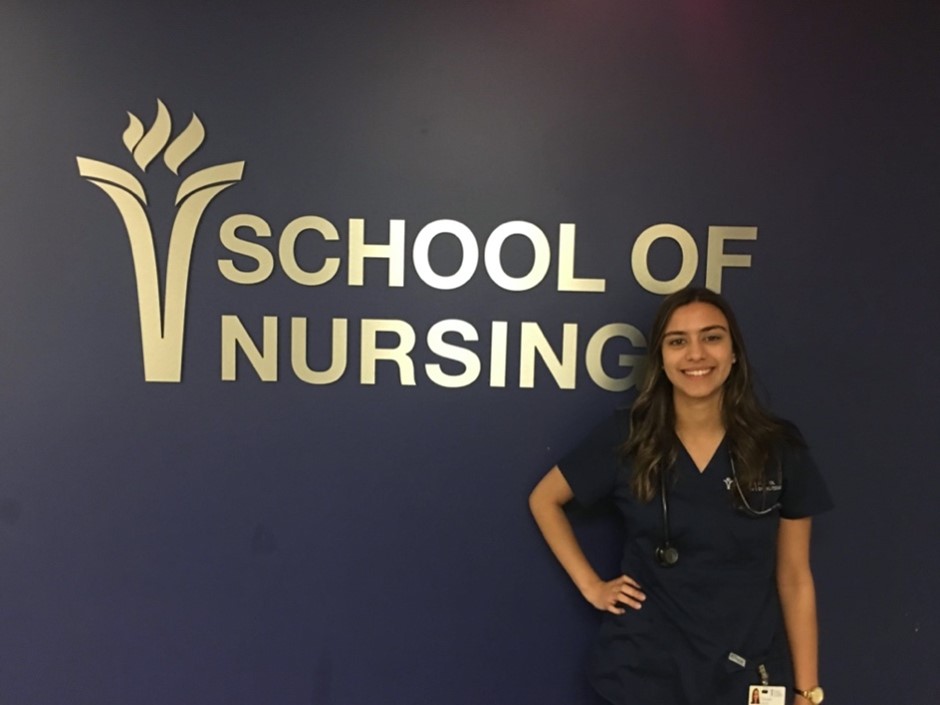My name is Victoria Fowler and I am an undergraduate research assistant in my third year of nursing at Trinity Western University. I have had the privilege of working alongside the Mothering and Albinism research team to gather information and raise awareness about this very important topic. My role in this project has been to summarize the Reports written by the United Nations (UN) Independent Expert on the enjoyment of human rights by persons with albinism, Ikponwosa Ero. Throughout this assignment, I have gained insight into gaps in the current research, the importance of addressing them, and what it means for the practice of nursing. I have also gained great knowledge and insight into the human rights violations that people with albinism face. In this blog post, I share the main themes and highlights that I have discovered through my work summarizing the 18 UN Reports.

In June 2015, the Human Rights Council appointed Ms. Ikponwosa Ero as the first Independent Expert on the enjoyment of human rights by persons with albinism. The mandate involves transmitting urgent appeals and letters of allegation to States (governments) with regard to cases of violence and discrimination against persons with albinism, and undertaking fact-finding country visits. The Independent Expert is also mandated to report annually to the Human Rights Council and to the General Assembly.
The Reports cover various thematic areas (e.g., witchcraft and human rights of persons with albinism; access to justice; albinism worldwide) or summarize country visits. As UN Independent Expert, Ero has conducted country visits to Mozambique (A/HRC/34/59/Add.2), Malawi (A/HRC/34/59/Add.1), Tanzania (A/HRC/37/57/Add.1), Kenya (A/HRC/40/62/Add.3), Fiji (A/HRC/40/62/Add.1) and South Africa (A/HRC/43/42/Add.1). Other Reports summarize meetings hosted by the mandate (e.g., Expert workshop on witchcraft and human rights Sept 2017 in Geneva; Roundtable on human rights and albinism: seeking consensus and priorities on advocacy and research Sept 2018 in Geneva). The Reports typically summarize the relevant issues, identify best practices related to the issue, and offer conclusions and recommendations. All of the Reports are undertaken through a human rights framework. The Reports can be found here.
One of the thematic UN Reports (A/HRC/43/42) focuses explicitly on the impact of albinism on women and children. Issues of poverty, discrimination and lack of access to resources are discussed. A related theme that is noted in the Report is the lack of involvement and the abandonment by fathers of children with albinism. This dynamic within the family system tends to leave the mothers of children with albinism with a lack of support, both physically and financially.
Because of the research foci of the Mothering and Albinism project including the impact of spiritual and cultural beliefs, I gleaned information from the Reports about harmful practices and human rights violations. The UN Reports draw attention to particular witchcraft traditions that result in persons with albinism being hunted down and murdered for parts of their bodies that are deemed to have “magical” powers. Many of the Reports suggest the need for differentiation between the practices of witchcraft and those of traditional healers, in an attempt to eliminate harmful practices.
Although there is current and emerging research about the detriments that individuals with albinism face, there appears to be a gap in particular areas relating to albinism. These areas include the siblings of children with albinism and children of parents with albinism. There is little to no research pertaining to the impact of the lives of siblings of children with albinism. One Report (A/HRC/37/57/Add.2) highlighted the need to research this, and gather information relating to how having a sibling with albinism has impacted their access to healthcare, education, and freedom of stigma and discrimination overall. The experience of children whose parents have albinism is an area that also lacks research. The need to collect data on their experience is vital in discovering how their quality of life and well-being is being impacted by the discrimination that their parents may face as a result of their disability.
Lastly, the Reports suggest a variety of findings and recommendations. They underline the different initiatives geared toward aiding and supporting individuals with albinism, in the governmental and non-governmental sectors. The Reports also draw attention to the lack of funding and standardization of some of these interventions being implemented. There is also a consensus across the Reports that solutions must follow interdisciplinary and collaborative approaches between sectors, in order to accomplish human rights for individuals with albinism.
Through my findings and reflection of these observations, I have ascertained a greater understanding of what this means for the vocation of nursing, and why it is an important area of research. The importance of collaboration and working alongside individuals with albinism is essential in upholding the principle “nothing about us without us.” As nurses, we are called to care for those who, for a variety of reasons, face barriers to self-care and self-advocacy, especially groups that are already marginalized or socially excluded. As such, we strive for equity among these populations, including the albinism community. We as nurses must seek out the injustices that exist within society and endeavor to make a sustainable difference in those who face structural vulnerability.

Reports to the Human Rights Council are of inestimable value to the protection of human rights of persons with albinism worldwide. Here at the Council, we take the plight of some of the most invisible and marginalized persons with albinism and put it in the spotlight; to highlight and give effect to their humanity and their dignity in a manner that is positively transformative for them and facilitative of their enjoyment of human rights. – Ikponwosa Ero, UN Independent Expert
written by Victoria Fowler, Undergraduate Research Assistant
